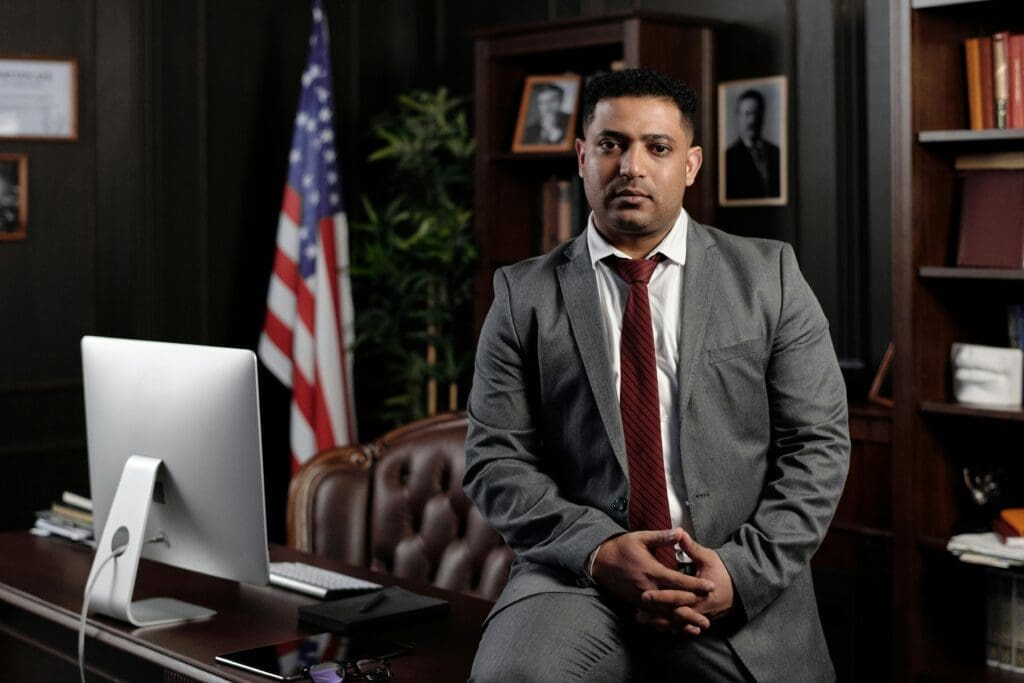James Earl Jones, a legendary actor known for iconic roles such as Darth Vader in Star Wars and Mufasa in The Lion King, passed away at age 93, leaving behind a remarkable legacy. His contributions to film, theater, and television are unforgettable, but his approach to estate planning offers valuable lessons for individuals in Nevada. While details of his estate remain private, the principles reflected in his life provide critical insights into the importance of thoughtful planning.
For Nevada residents, estate planning is not only about distributing assets but also about safeguarding privacy, addressing family dynamics, and leaving a legacy that reflects personal values. By working with an experienced Nevada estate planning attorney, such as Anderson, Dorn & Rader Ltd., families can create tailored plans to ensure their wishes are honored.
One of the most significant estate planning tools James Earl Jones likely used was a trust. Trusts offer a way to manage and transfer assets while maintaining privacy. Unlike wills, which become public record during probate, trusts keep financial matters confidential. This approach aligns with Jones’s preference for privacy, both in life and in death.
For Nevada residents, trusts provide an opportunity to bypass probate entirely. This can save time, reduce legal costs, and prevent unnecessary public scrutiny of personal finances. Whether you are protecting real estate, business interests, or personal assets, trusts are a cornerstone of effective estate planning. A Nevada estate planning attorney can guide families in establishing trusts that align with their goals and ensure seamless asset management.

James Earl Jones’s family structure, including his son Flynn and extended relatives, demonstrates the complexities that can arise when creating an estate plan. Balancing the needs of an only child, step-relatives, or other beneficiaries requires careful consideration. In Nevada, addressing these dynamics can prevent future disputes and ensure that all parties feel fairly treated.
Estate plans in Nevada often incorporate trusts and conditional gifts to address unique family circumstances. For instance, parents may establish trusts for a single child while designating other assets for extended family or charitable causes. Additionally, including clear instructions in estate planning documents minimizes ambiguity and helps loved ones navigate decisions with confidence.
Balancing family relationships in estate planning is an essential step for Nevada residents, and Anderson, Dorn & Rader Ltd. offers the expertise to navigate these complexities effectively.
James Earl Jones’s decision to accept a lump sum payment for voicing Darth Vader, rather than a share of profits, serves as a cautionary tale. This choice cost him millions of dollars in potential earnings, underscoring the importance of foresight in financial decisions. Similarly, estate planning mistakes—such as failing to account for future financial growth or not updating plans to reflect life changes—can have lasting repercussions.
In Nevada, estate plans must be dynamic, adapting to evolving family circumstances, financial situations, and legal changes. Regular reviews with a Nevada estate planning attorney ensure that plans remain effective and aligned with current goals. Avoiding costly oversights starts with seeking professional guidance to create and maintain a comprehensive plan.
James Earl Jones’s charitable spirit was evident in his support for causes like the Make-A-Wish Foundation and Habitat for Humanity. Including philanthropy in an estate plan not only reflects personal values but also offers financial benefits, such as tax deductions. For Nevada residents, charitable giving can be seamlessly integrated into estate planning strategies through mechanisms like charitable trusts, donor-advised funds, or direct bequests.
A Nevada estate planning attorney can help identify the best options for incorporating philanthropy into an estate plan, ensuring that donations benefit chosen causes while optimizing tax savings. By including charitable giving in their plans, individuals can extend their legacies beyond their families, making a lasting impact on their communities.
The life and legacy of James Earl Jones underscore the importance of comprehensive estate planning. Whether through preserving privacy, addressing family dynamics, or supporting charitable causes, estate planning ensures that personal values and priorities are honored. For Nevada residents, the stakes are no less significant.
Anderson, Dorn & Rader Ltd. specializes in helping individuals and families create tailored estate plans that reflect their unique circumstances. By working with experienced attorneys, clients gain the peace of mind that comes from knowing their wishes will be respected and their loved ones protected.
Establishing a revocable living trust is a critical step in creating a well-rounded estate plan. Many individuals assume that setting up a trust automatically helps them avoid the complexities of Nevada probate. However, this isn’t always the case. Simply creating a trust is not enough; you must also ensure that your assets are properly transferred to the trust or have appropriate beneficiary designations.
Anderson, Dorn & Rader Ltd. in Reno specializes in Nevada estate planning. This article explores the essential factors that determine whether a living trust will help you avoid probate, what types of assets are subject to probate, and the consequences of not properly funding your trust.
For a revocable living trust to function as intended and bypass probate, it must be fully funded. Funding your trust involves transferring ownership of your assets—such as real estate, bank accounts, and investments—into the trust or naming the trust as a beneficiary.
For example, if you own property, you need to re-title it in the name of your trust. Similarly, financial accounts that you wish to include in the trust must have the trust named as the owner or beneficiary. Without this step, these assets will remain outside of the trust and may be subject to probate proceedings in Nevada.
Failing to properly fund your trust can negate the primary benefit of avoiding probate, leading to potential delays and additional costs for your heirs. Anderson, Dorn & Rader Ltd. can help you ensure all necessary assets are included in your trust.
Not all assets are automatically exempt from probate simply because you have a trust. Probate is required for assets titled solely in your name without a designated beneficiary or joint ownership agreement. Examples include:
Additionally, assets owned as tenants in common with another person will need to go through probate unless explicitly included in your trust or assigned to a beneficiary. A thorough estate plan accounts for these nuances, helping you avoid unexpected probate proceedings.

Certain assets are not subject to probate and will pass directly to beneficiaries upon your death. These include:
It’s important to ensure that beneficiary designations are updated and reflect your current wishes. Anderson, Dorn & Rader Ltd. offers personalized estate planning services to help align your beneficiary designations with your overall trust strategy.
Even with a well-prepared revocable living trust, if your assets are not transferred or titled correctly, they could still end up in probate. This creates additional burdens for your loved ones, who may need to navigate the probate process while managing your estate.
To address this issue, some individuals include a pour-over will in their estate plan. This type of will directs any unfunded assets to be transferred into your trust during probate. However, relying on a pour-over will is not an ideal solution—it still involves going through probate, which can delay the distribution of assets and increase legal fees.
The best approach is to work with estate planning professionals who can help you avoid the pitfalls of unfunded trusts. Anderson, Dorn & Rader Ltd. in Reno provides guidance on properly funding your trust to ensure that your assets are transferred efficiently and according to your wishes.
At Anderson, Dorn & Rader Ltd., we understand that each estate plan is unique. We take a personalized approach to ensure that your revocable living trust is fully funded and aligned with your goals.
Proper planning reduces the risk of probate and ensures that your assets are distributed smoothly to your heirs. Our team will help you review your trust, update beneficiary designations, and transfer assets as needed to avoid probate complications.
If avoiding probate is a priority for your estate plan, setting up a revocable living trust is only the beginning. You must also ensure that your assets are correctly transferred into the trust or designated with appropriate beneficiaries.
Contact Anderson, Dorn & Rader Ltd. in Reno for expert guidance on funding your trust and avoiding probate. Our personalized estate planning services will help ensure your trust operates as intended, protecting your assets and providing peace of mind for you and your loved ones.
When family members discover they’ve been left out of a parent’s estate plan, it can trigger feelings of confusion and frustration. With the ongoing wealth transfer between generations, many anticipate receiving an inheritance, but evolving financial realities often disrupt these expectations. For Nevada families, understanding the legal aspects of disinheritance is essential. Anderson, Dorn & Rader Ltd., a leading estate planning firm in Reno, offers expert guidance for individuals navigating these sensitive situations.
This article provides an overview of inheritance trends, explores possible legal challenges, and identifies when professional legal help is necessary to protect your interests.
According to financial experts, nearly $84 trillion will pass from older to younger generations by 2045, a phenomenon known as the “Great Wealth Transfer.” However, many adult children may not inherit as much as they expect.
Parents are living longer, spending more on retirement, and facing increasing healthcare costs, which can significantly reduce the wealth passed down. Surveys reveal that over half of millennials expect an inheritance of around $350,000 or more, but baby boomers often plan to leave far less. Some don’t plan to leave anything at all, having spent savings on long-term care or lifestyle expenses.
This mismatch in expectations highlights the importance of open family discussions. Anderson, Dorn & Rader Ltd. encourages families to engage in proactive estate planning conversations to avoid misunderstandings and provide clarity on inheritance plans.
In Nevada, children do not have an automatic right to inherit from their parents. If an estate plan explicitly disinherits someone, challenging it can be difficult. However, there are specific circumstances where contesting a will or trust may be legally valid.
Lack of mental capacity can provide grounds to contest an estate plan. If a parent was not of sound mind when drafting their will or trust, the document could be considered invalid. Additionally, undue influence—such as pressure from a caregiver or family member to alter the estate—may also lead to legal challenges.
Errors or misunderstandings are another valid reason to contest a will. For instance, if a parent mistakenly disinherited a child based on false assumptions, such as a belief that the child had financial issues or struggled with addiction, the will or trust may be challenged.
Successfully contesting an estate plan requires clear evidence and professional legal representation. Anderson, Dorn & Rader Ltd. specializes in navigating Nevada’s estate planning laws and offers personalized advice to evaluate your case.

It’s important to identify signs that something may have gone wrong during the estate planning process. A few red flags to watch for include unexplained changes to the estate plan, especially those made shortly before the parent’s death. These alterations can raise questions about undue influence or cognitive decline.
Unknown beneficiaries can also be a cause for concern. If significant assets are left to someone outside the family, such as a new acquaintance or recently involved organization, this may indicate manipulation. Similarly, if one sibling or caregiver receives the majority of the estate without a clear reason, it is worth investigating.
Anderson, Dorn & Rader Ltd. can help uncover inconsistencies in an estate plan and determine if legal intervention is necessary. Their experienced team knows how to gather evidence, analyze documents, and protect your interests through every step of the process.
Navigating estate plans and inheritance disputes without professional help can be overwhelming. Working with knowledgeable estate planning attorneys ensures that you understand your options and rights, minimizing the stress involved in these situations.
Anderson, Dorn & Rader Ltd. provides comprehensive estate planning services in Reno, helping clients access probate records, analyze estate documents, and develop legal strategies. If a parent’s estate plan has gone through probate, their attorneys can help obtain these records to identify beneficiaries and distributions.
The team also offers expert advice on legal strategies. Whether you suspect manipulation, need to access trust documents, or wish to contest an estate plan, their attorneys provide the support necessary to navigate Nevada’s probate courts effectively. Estate planning attorneys offer more than legal expertise—they provide clarity and peace of mind during a time of emotional uncertainty.
Taking the Next Steps with Confidence
If you have questions about your rights or suspect issues with a parent’s estate plan, Anderson, Dorn & Rader Ltd. in Reno is here to help. Their experienced team offers personalized guidance to determine your best course of action. Whether contesting a will, reviewing probate documents, or exploring your inheritance rights, their legal expertise ensures you navigate Nevada’s estate planning laws with confidence.
Why Professional Guidance Makes a Difference
Being excluded from a parent’s estate plan can be difficult, but understanding your legal options empowers you to take action. With trillions of dollars transferring between generations, having a clear plan is essential.
If you are dealing with disinheritance, knowing when to seek professional support is critical. Anderson, Dorn & Rader Ltd. provides expert estate planning services tailored to meet your specific needs, ensuring your questions are addressed and your rights protected.
Planning for your child's future is an important part of Nevada estate planning. Anderson, Dorn & Rader Ltd. understands that choosing the right individuals to care for your child and manage their financial assets requires careful thought. Deciding whether the same person should serve as both the guardian and the trustee is one of the most significant decisions parents must make. This article explores the roles, benefits, and challenges to help you make an informed choice that aligns with your family’s needs.
A guardian takes on the responsibility of raising your child if you are no longer able to do so. This includes making decisions about their education, healthcare, and emotional well-being. A trustee, on the other hand, manages any financial assets or inheritance left for your child, ensuring those resources are used wisely for their benefit.
Both roles are essential, but they require different skill sets. While a guardian focuses on providing emotional and physical care, a trustee must have the ability to manage finances responsibly. Anderson, Dorn & Rader Ltd. can help parents evaluate potential candidates to ensure each role is filled by the right person.
There are situations where appointing the same person as both guardian and trustee can simplify the process. This approach streamlines decision-making by ensuring consistency between your child's care and financial management. For example, the same individual can make informed choices about education or healthcare costs without needing approval from a separate trustee.
Choosing one person to serve in both roles can also prevent disagreements between the guardian and trustee, fostering a unified approach to your child’s upbringing and financial planning. This solution works well when you have complete trust in an individual’s ability to manage both responsibilities.

Despite the advantages, assigning both roles to one person may also present challenges. Managing a child’s emotional needs while handling their financial affairs can be overwhelming for a single individual. Even a well-intentioned guardian may struggle to keep up with budgeting, investments, or legal responsibilities without prior experience in financial management.
Another risk is the possibility of conflicts of interest. A guardian might unintentionally use the child’s assets for purposes that do not align with the original financial plan. Anderson, Dorn & Rader Ltd. advises parents to carefully consider these potential challenges before deciding.
Appointing different individuals as guardian and trustee can provide important checks and balances. The trustee focuses solely on managing finances, ensuring that funds are preserved and used appropriately over time. Meanwhile, the guardian can dedicate their attention to your child’s well-being without the added pressure of financial responsibilities.
By separating the roles, families reduce the risk of conflicts and ensure that each individual is best suited to their specific responsibilities. Anderson, Dorn & Rader Ltd. recommends this approach for parents who want to create a balanced structure of care and financial management.
When it comes to securing your child’s future, there is no one-size-fits-all solution. The decision to assign the same person as both guardian and trustee—or to split the roles—depends on your family’s unique circumstances. Anderson, Dorn & Rader Ltd. can help you evaluate the pros and cons of each option to design an estate plan that provides emotional stability and financial security for your child.
When planning for the future, few topics are more important than the care of your children and the protection of your assets. If something unexpected happens, ensuring your children are raised by someone you trust is essential. At Anderson, Dorn & Rader Ltd. in Reno, we understand the complexity of these decisions. One critical step is naming a guardian for your minor children and ensuring a sound financial plan that includes leaving an inheritance to grandchildren.
This article explores the importance of naming a guardian and trustee, financial planning for children’s future needs, and strategies to ensure that your legacy benefits your grandchildren.
In Nevada, if you don’t name a guardian, the court will make this decision for you, which may lead to unwanted outcomes. Judges are required to consider the child's best interests, but they do not know your personal values, preferences, or relationships. There is a risk that your children could end up with a relative you don't approve of or, in some cases, a stranger.
By naming a guardian, you gain control over who will raise your children and ensure their upbringing aligns with your values and vision for their future. Your selected guardian will step in to provide emotional support and continuity during a challenging time, following your wishes regarding their education, well-being, and daily life. This peace of mind can be invaluable for parents thinking long-term.
Selecting a guardian requires careful thought. Factors such as the relationship between the potential guardian and your children, their parenting style, and shared values are essential considerations. Stability is also crucial—how familiar your children are with the person, whether they live nearby, and if they can maintain your children’s current school, friendships, and routines.
It is also important to consider the guardian’s health, age, and long-term ability to care for your children. While grandparents may have time and experience, they may struggle with the physical demands of raising young children. On the other hand, younger guardians, such as siblings, may not be in a stable life stage to take on the responsibility.
Before making a decision, have open conversations with your chosen guardian to ensure they are comfortable taking on this role. Naming an alternate guardian provides an extra layer of security if your first choice cannot serve.
Raising children should not impose a financial burden on the guardian. Many parents plan ahead by designating funds through savings, life insurance, or other financial assets. These resources can cover essential needs like housing, education, healthcare, and daily living expenses.
When leaving an inheritance to grandchildren, it is wise to plan how these funds will be managed. Some parents also provide additional financial support, such as helping the guardian upgrade their home or buy a larger vehicle to accommodate their children comfortably.
Ensuring financial stability is crucial for your children’s future and eases the guardian’s responsibilities, allowing them to focus on providing emotional and practical care.

In many situations, it makes sense to assign separate individuals for the roles of guardian and trustee. While the guardian provides emotional and physical care, the trustee manages financial assets for your children or grandchildren. This division of responsibilities ensures that financial resources are used correctly, reducing potential conflicts of interest.
For example, a trusted family member who loves your children may not have the financial expertise to manage investments, life insurance payouts, or property assets. Appointing a trustee with financial experience ensures that funds are managed properly and distributed according to your wishes. This structure also creates accountability, preventing misuse of the inheritance meant to benefit your children or grandchildren.
If no guardian is named in your will or estate plan, a judge will decide who raises your children. In this situation, anyone—including estranged family members—can petition the court for custody. This process can lead to disputes among relatives and result in outcomes that may not align with your preferences.
Naming a guardian as part of your estate plan ensures the court respects your wishes. It also spares your children the emotional stress of uncertainty during an already difficult time.
Proactive estate planning, including naming a guardian and trustee, ensures that your children and grandchildren are protected. While these decisions are challenging, they are essential to creating a secure future for your family.
At Anderson, Dorn & Rader Ltd., we help families in Nevada develop customized estate plans. Whether you need guidance on naming a guardian or advice on leaving an inheritance to grandchildren, our team is here to help.
Planning for the unexpected is an act of love. Naming a guardian and planning financial support through life insurance or inheritance are critical steps in protecting your children’s future. At Anderson, Dorn & Rader Ltd., we offer personalized estate planning services tailored to your family’s needs.
Take the first step toward peace of mind by contacting us for a consultation. We’ll help you navigate the complexities of estate planning, from selecting guardians to managing finances for your children and grandchildren.
Pet trusts were once seen as the eccentric indulgences of the wealthy, but today, they are recognized as a practical part of estate planning. In 2016, Minnesota became the last of the 50 states to legally recognize pet trusts. However, not all pet trusts perfectly reflect the owner's intentions. Let’s explore six famous pet trust cases and learn how to create a plan that truly protects your pets.
Lesson: Leaving an excessive sum to a pet can lead to legal challenges and family conflicts. It’s important to leave a reasonable amount based on the actual cost of care for your pet’s remaining years. Discuss any disinheritance plans with your attorney to make them as solid as possible.

Lesson: Using a trust helps maintain privacy regarding your estate’s details, preventing public scrutiny.
Lesson: Pet trust benefits can extend across generations, so ensure your estate plan clearly reflects your intentions for future pets.
Lesson: You can be creative in ensuring your pet receives proper care after your passing by designating trusted organizations or individuals to manage their care.
Lesson: Don’t assume someone will automatically care for your pet. Plan ahead by choosing a reliable caretaker and putting your wishes in writing.

Lesson: Ensure your financial plan aligns with your estate plan and closely monitor your advisors to protect your assets.
Protecting Your Pets with a Pet Trust
Establishing a pet trust is the most reliable way to ensure your pets are cared for after your death. If you haven’t yet made arrangements for your pets in your estate plan, now is the time. A Nevada trust attorney can help you set up a new pet trust or incorporate one into your existing plan. Contact us today to safeguard your pets' future.
Planning for your pet's future in your estate plan is essential to ensure they are cared for after you're gone. A common and effective way to achieve this is by setting up a pet trust, a legal tool that provides specific instructions and funds for your pet's care. However, many people make critical mistakes that can leave their pets vulnerable. Here are five common pitfalls to avoid when creating a trust and ensuring a comprehensive estate plan that protects your furry friend.

Estate planning isn't just about safeguarding the future of your human loved ones—it's also about ensuring that your pets are cared for if something happens to you. Many pet owners worry about what might happen to their animals if they are no longer around. This is where a pet trust can be invaluable.
A pet trust is a legal tool that can be included in your estate plan to ensure your pets are looked after according to your wishes. Without a plan, your pets could face uncertainty, and in the chaos that follows a death, they might even be overlooked or abandoned. By setting up a pet trust, you can avoid these scenarios and make sure your furry family members are well cared for.

When you decide to create a pet trust, there are three important choices you need to make:
You might assume that you’ll outlive your pets, but estate planning is about preparing for the unexpected. By including a pet trust in your estate plan, you ensure that your pets will be cared for, even if you’re not there to do it yourself. Don’t leave your pet’s future to chance—work with a Nevada trust attorney to protect what matters most to you.
Many pet owners in Nevada and across the U.S. overlook including their beloved pets in their estate plans. While some may have plans for their pets after death, few consider what happens if they become incapacitated. Planning for your pets through tools like pet trusts and pet wills can ensure your animal companions are well cared for, even during times of personal incapacity or after your passing.
Incorporating pets into your estate plan isn’t just a loving gesture—it’s essential for ensuring they receive the care they deserve, no matter what happens to you. Whether through temporary arrangements for a caregiver or long-term planning with a trust, protecting your pets legally guarantees they are treated as important members of your family.

Though some pet owners include pets in their wills, a pet trust offers more flexibility and control. A pet trust is a legal document that ensures funds are set aside for your pet’s care, with a trustee overseeing the process. The trust applies not only after your death but also during periods of incapacity. This feature helps protect pets if you become unable to care for them due to illness or disability.
All 50 states, including Nevada, allow pet trusts. In a trust, you can designate caretakers and specify detailed instructions for your pet's care, covering essentials like food, shelter, and veterinary attention. You can also include provisions for multiple pets or different species, ensuring they receive the appropriate resources.
While a pet will allows you to leave your pet to someone as part of your estate, it has several limitations. Wills only take effect after death, so they don’t cover incapacity situations. Furthermore, the person named to care for your pet in a will has the right to refuse, which could leave your pet’s future uncertain.
Naming alternate pet guardians in your will can help, but it’s also vital to recognize that many organizations, like shelters, may not be equipped for long-term care. This makes a pet trust a more reliable tool for securing your pet’s future.
Planning for incapacity is crucial because pets often end up in shelters if their owners become ill or incapacitated. According to reports, millions of pets enter shelters every year, with some facing euthanasia due to a lack of provisions for their care. A properly structured pet trust or pet will ensures that your animal is never left in limbo during such emergencies.
In addition to pet trusts and wills, a pet care power of attorney can help address care during incapacity. This legal document gives someone the authority to make decisions on your behalf regarding your pet. You can specify what types of care your pet should receive and who will oversee that care, ensuring your pet’s needs are met no matter your situation.
Contemplating the future of our loved ones after we're gone can be tough. While acknowledging our mortality isn't easy, proactive estate planning allows us to ensure our wishes are fulfilled, providing a secure future for those we care about. In Reno, effective estate planning ensures your assets and wishes are properly managed and respected.

The initial step in estate planning is identifying your priorities. Your unique circumstances, the needs of your loved ones, and your philanthropic goals will shape these priorities. Clarifying your goals is essential to work with advisors and ensure sufficient resources to meet your wishes. This teamwork also helps avoid conflicts or issues within your estate plan.
Consider the following common estate planning priorities:
Take the following steps to prepare for creating your estate plan:
Creating a comprehensive estate plan in Reno can be one of the most valuable gifts for your loved ones. By clearly defining your priorities and working with experienced professionals, you can ensure your estate plan reflects your wishes and secures your loved ones' future. Contact us to learn more about how we can help you design a plan tailored to your needs.
Wrongful Death and Probate in Reno: Consulting a Wrongful Death Lawyer in Reno
Wrongful death lawsuits and probate proceedings are both civil legal matters that occur after somebody has died. When the death of a loved one is caused by another individual or entity, it can lead to the filing of a wrongful death lawsuit and, ultimately, the awarding of compensation to surviving family members. Probate is a court proceeding that deals with administering a decedent’s estate, inventorying their accounts and property, paying off creditors, and making distributions to heirs or beneficiaries. Consulting a wrongful death lawyer in Reno can help navigate these complex legal processes.
While probate proceedings are fairly common when a person dies, very few deaths give rise to a wrongful death claim. However, wrongful death and probate can intersect if somebody dies due to another’s misconduct.
The Role of a Wrongful Death Lawyer in Reno
State laws vary on who has the legal authority to file a wrongful death case. There is also considerable state variation on how the proceeds of a wrongful death claim are distributed to survivors. A wrongful death lawyer in Reno can provide the necessary guidance on state-specific laws and procedures.

What Is a Wrongful Death? Understanding with a Wrongful Death Lawyer in Reno
A wrongful death, as the term implies, is a death that results from the “wrongful” action of another, such as negligence, carelessness, recklessness, or intentional conduct. Both individuals and entities, such as businesses and governments, can commit a wrongful action that leads to death. For example:
Wrongful death is a matter of civil law, although in some cases—perhaps most famously the O.J. Simpson case—a person’s death can lead to both criminal and civil charges. To navigate such cases, the assistance of a wrongful death lawyer in Reno is crucial.
Who Can File a Wrongful Death Lawsuit? Consult a Wrongful Death Lawyer in Reno
A wrongful death lawsuit can award damages to pay for the decedent’s medical bills, pain and suffering, and funeral expenses. It can also provide money to survivors for their economic and emotional injuries, such as loss of financial support, household services, and love and companionship.
The question of who can file a wrongful death lawsuit comes down to state law. Generally, states allow one of the following to sue:
In states where survivors are allowed to sue for wrongful death, the right to file suit is typically prioritized based on the closeness of the relationship, with a surviving spouse and children given priority. Some states allow groups of survivors to sue. Others give priority to family members and give them a limited amount of time to file a lawsuit, and, if they fail to do so, additional relatives and even unmarried domestic partners can then sue.
There are also certain states where only the decedent’s probate estate can file a wrongful death lawsuit. In these states, the personal representative of the probate estate (for example, a family member or a lawyer) is the only party who has the legal authority to act on behalf of the estate and file the lawsuit. The personal representative of the probate estate might be someone who was named in the decedent’s will or appointed by a judge according to state law if the decedent died without a will. Consulting with a wrongful death lawyer in Reno can help clarify these rights and responsibilities.
Wrongful Death, Estates, and Probate: Insights from a Wrongful Death Lawyer in Reno
Probate is not always necessary when someone dies; there are instances when the value of the decedent's money and property is small enough to avoid probate, or the family uses estate planning tools such as living trusts to avoid it.
Wrongful death claims, as previously mentioned, are relatively uncommon. In 2022, there were just over 227,000 preventable deaths caused by injuries nationwide and not all of these were wrongful deaths.
Even if a person has no accounts or property or if their estate is otherwise eligible to skip probate, numerous factors can make opening an estate and filing for probate necessary to resolve a wrongful death claim.
Here are some areas where a wrongful death claim overlaps with opening an estate and engaging the probate court:
To summarize, if a wrongful death lawsuit is filed, it is likely to trigger probate and court involvement considerations in one way or another. The specific ways in which wrongful death and probate intersect, however, are largely dependent on state law. Consulting a wrongful death lawyer in Reno can help navigate these complex intersections.
Who Gets the Money from a Wrongful Death Lawsuit? Consult a Wrongful Death Lawyer in Reno
Determining who benefits from a wrongful death settlement or jury verdict, like other aspects of a wrongful death lawsuit, comes down to state statute.
The different ways that states approach the distribution of damages awarded in a wrongful death lawsuit include the following:
As these examples show, there is a high degree of variability among states about wrongful death lawsuit award distributions. States may give significant latitude to family members to decide how the proceeds should be split or strictly adhere to statutory provisions.
States also vary on the types of damages that can be awarded in a successful wrongful death claim. Most state laws allow economic and noneconomic damages to be recovered, but they may give itemized descriptions of the specific damages that can be awarded to particular survivors and distinguish between damages recoverable by survivors and recoverable by the estate. In some states, each heir must present evidence to the court of their losses to receive a share of the wrongful death damages. A wrongful death lawyer in Reno can help navigate these state-specific rules and ensure fair distribution.
Talk to a Wrongful Death Lawyer in Reno About Wrongful Death and Settling an Estate
Closing the book on a loved one’s estate can be procedurally complicated and emotionally difficult no matter the circumstances of their death, but if their passing also involves a wrongful death claim, the situation can become much more emotional and increasingly complex.
Whether you are a personal representative or family member responsible for filing a wrongful death lawsuit, an heir seeking to claim a portion of a wrongful death payout, or you want to make sure that your estate plan anticipates the possibility of a wrongful death and addresses how to best deal with it, our attorneys can help.
Contact us to set up a time to talk to a wrongful death lawyer in Reno about the intersection of wrongful death, probate, and estate law.
Life is unpredictable, and a sudden disability can throw even the best-laid estate plans into chaos. Understanding how to adapt your estate plan to accommodate new disability considerations is crucial for ensuring peace of mind and financial security for you and your loved ones. This guide will help you navigate this challenging situation with the assistance of a Reno estate attorney.

When a disability occurs, it can significantly impact your existing estate plan. Assets you intended to leave to your loved ones may need to be reallocated to cover unexpected medical expenses and long-term care costs. Moreover, the management of your estate might need to be adjusted to accommodate the new circumstances. A Reno estate attorney can help you reassess your plan and make necessary adjustments to ensure your assets are protected and allocated according to your new needs.
One of the first steps to take is reviewing your beneficiary designations. Ensure that these designations align with your current wishes and the new needs created by the disability. This includes reviewing life insurance policies, retirement accounts, and other financial instruments to ensure that your estate plan remains intact and beneficial to all involved. Your Reno estate attorney can assist in this review to ensure accuracy and alignment with your updated goals.
Updating your power of attorney documents is essential. This legal tool allows you to designate someone to make financial and healthcare decisions on your behalf if you become incapacitated. Ensure your chosen representative understands your wishes and is prepared to act in your best interest. A Reno estate attorney can help you explore your options and integrate long-term care insurance into your overall plan.
A living will outlines your healthcare preferences should you become unable to communicate them. Updating this document to reflect any new medical conditions or preferences resulting from the disability is critical. It ensures that your healthcare decisions are respected and followed.
Your Reno estate attorney can collaborate with your financial planner to create a comprehensive plan that addresses all aspects of your financial needs.
Consider investing in long-term care insurance if you haven't already. This type of insurance can cover expenses that traditional health insurance does not, such as nursing home care, in-home care, and assisted living facilities. It can be a
crucial component of your updated estate plan.
Work with a financial planner to budget for the new expenses associated with the disability. This may include medical treatments, home modifications, and daily living assistance. Proper financial planning can help ensure that your estate remains solvent and can continue to support your loved ones.
A special needs trust can be an invaluable tool for managing the finances of a disabled loved one without jeopardizing their eligibility for government assistance programs. These trusts allow you to set aside funds specifically for the care of the disabled person, ensuring their needs are met without compromising their benefits. A Reno estate attorney can help you establish and manage a special needs trust tailored to your situation.
In some cases, establishing a guardianship may be necessary. A guardianship gives someone the legal authority to make decisions on behalf of the disabled person. This can provide peace of mind, knowing that a trusted individual is managing the affairs of your loved one in accordance with your wishes.
Adapting your estate plan in light of a disability requires careful consideration and expert guidance. By understanding the impacts on your current plan, updating essential legal documents, making financial provisions for long-term care, and utilizing tools like special needs trusts and guardianships, you can ensure that your estate plan continues to serve its intended purpose.
At Anderson, Dorn & Rader Ltd., we are here to help you navigate these changes. Contact us for a personalized consultation to discuss how we can adapt your estate plan to meet new disability cons
iderations, ensuring peace of mind and financial security for you and your family.
Estate planning is a vital step in securing your legacy and ensuring that your assets are distributed according to your wishes. However, one crucial question often derails even the most well-thought-out estate plans: "Are my beneficiary designations up-to-date and accurate?" As estate planning attorneys in Reno, we at Anderson, Dorn & Rader Ltd. are here to help you understand the importance of beneficiary designations and how to ensure they align with your overall estate plan.

Beneficiary designations are instructions you provide to financial institutions, insurance companies, and retirement plan administrators, specifying who should receive the proceeds of your accounts upon your death. These designations override your will and trust, making them a crucial element of your estate plan.
Beneficiary designations ensure that your assets are transferred quickly and directly to the intended recipients without the need for probate. This can save time, reduce legal fees, and provide immediate financial support to your beneficiaries. However, they must be carefully managed to avoid conflicts and ensure they reflect your current wishes.
One of the most common mistakes is failing to update beneficiary information after major life events such as marriage, divorce, the birth of a child, or the death of a loved one. Outdated beneficiary designations can lead to unintended recipients, causing family disputes and legal complications.
Naming minor children as beneficiaries without establishing a trust or appointing a guardian can create legal challenges, as minors cannot legally manage inherited assets. Instead, consider setting up a trust or appointing a guardian to manage the assets until the children reach adulthood.
Failing to name contingent beneficiaries—those who will inherit if the primary beneficiary predeceases you—can result in your assets becoming part of your probate estate, defeating the purpose of having beneficiary designations. Always include contingent beneficiaries to ensure your estate plan is comprehensive.
If your beneficiary designations do not align with your will or trust, the designations will take precedence, potentially leading to outcomes that contradict your estate planning intentions. For example, if your will leaves all assets to your spouse, but your beneficiary designations name a former spouse, the former spouse will receive those assets.
Conflicting information can lead to legal disputes among family members, causing delays and increasing the cost of estate administration. Ensuring that your beneficiary designations are consistent with your overall estate plan helps prevent such conflicts and ensures your wishes are honored.
Take the time to review all your financial accounts, insurance policies, and retirement plans to ensure the beneficiary designations are current and accurately reflect your wishes. This includes checking for primary and contingent beneficiaries.
Working with experienced estate planning attorneys in Reno can help you navigate the complexities of beneficiary designations. An attorney can provide guidance on the best strategies for aligning your designations with your overall estate plan and ensure that all legal requirements are met.
Make it a habit to review and update your estate plan, including beneficiary designations, at least once a year or after significant life events. Regular updates help ensure that your estate plan remains accurate and effective, providing peace of mind for you and your loved ones.
Beneficiary designations play a critical role in your estate plan, but they are often overlooked. By understanding their importance, avoiding common mistakes, and ensuring they are consistent with your overall estate plan, you can safeguard your assets and ensure your legacy is managed according to your wishes.
Contact Anderson, Dorn & Rader Ltd. for a consultation to learn how real estate administration works and how you can properly prepare for it. Let us help you navigate the legal landscape to secure your legacy and provide peace of mind for your loved ones.
Generational wealth is an aspiration many families strive to achieve. However, planning for the seamless transfer of wealth across generations can be complex, especially when considering adoption and the use of dynasty trusts. This guide aims to provide clarity on how these tools can be used effectively to build and preserve generational wealth.

Dynasty trusts offer several benefits, including:
Setting up a dynasty trust requires careful legal structuring. This involves:
Adoption can significantly impact estate planning and the transfer of generational wealth. Legally, adopted children have the same rights as biological children in terms of inheritance. This means they can be included as beneficiaries in dynasty trusts and other estate planning instruments.
Adopting children can bring financial benefits beyond the joy of expanding your family. For instance:
To ensure a dynasty trust remains effective, it must be actively managed. This involves:
Life is unpredictable, and estate plans should be flexible enough to adapt to changes. This could involve:
Creating generational wealth through adoption and dynasty trusts requires careful planning and professional guidance. Anderson, Dorn & Rader Ltd. is here to help you navigate this process. Contact us for a personalized consultation to ensure your estate planning goals are effectively met.
When establishing a third-party special needs trust, one of the most critical decisions you'll make is choosing the trustee. The trustee will manage the trust assets, ensure that the beneficiary's needs are met, and navigate the complex regulations surrounding government aid. In this article, we will explore the key responsibilities of a trustee, the pros and cons of professional versus family trustees, the legal considerations involved, and the long-term impact of this decision.
The trustee is responsible for managing the assets held in the trust. This includes investing the assets wisely, ensuring they grow and are preserved for the future. A trustee must be knowledgeable about financial management or have access to professional advice to make informed decisions.
Another crucial responsibility is making distributions to the beneficiary. The trustee must ensure that distributions align with the terms of the trust and do not jeopardize the beneficiary's eligibility for government aid programs such as Supplemental Security Income (SSI) and Medicaid. This requires a thorough understanding of the rules governing these programs.

The trustee must balance the need to preserve trust assets with the need to provide for the beneficiary's current and future needs. This includes paying for medical expenses, education, housing, and other necessities that enhance the beneficiary's quality of life.
Appointing a family member as the trustee has several advantages. Family members are often more familiar with the beneficiary's needs and preferences, which can make them more compassionate and understanding trustees. They may also be more willing to serve without compensation, which can preserve trust assets.
However, there are downsides to consider. Family members may lack the financial and legal expertise required to manage the trust effectively. They may also face conflicts of interest or emotional stress from managing the trust, especially if they are already involved in caregiving.
A professional trustee, such as a lawyer, bank, or trust company, brings expertise in managing trust assets and navigating legal requirements. Professional trustees can provide a high level of impartiality and are less likely to face conflicts of interest. They also offer continuity, ensuring the trust is managed consistently over time.
The main drawback of professional trustees is cost. They typically charge fees for their services, which can be a percentage of the trust assets or a flat fee. Additionally, they may not have the same personal connection to the beneficiary as a family member would.
Trustees have a fiduciary duty to act in the best interests of the beneficiary. This means they must manage the trust assets prudently, avoid conflicts of interest, and comply with the terms of the trust. Trustees can be held legally liable for any breach of these duties.
Serving as a trustee involves potential legal liabilities. If the trustee mismanages the trust assets or fails to comply with legal requirements, they can be sued by the beneficiaries or other interested parties. It is crucial for trustees to understand these risks and seek professional advice if necessary.
The choice of trustee has a profound impact on the long-term welfare of the beneficiary. A well-chosen trustee can ensure that the beneficiary's needs are met without jeopardizing their eligibility for government aid. They can also provide stability and continuity, which are essential for the beneficiary's peace of mind.
A trustee's ability to manage the trust effectively will determine whether the trust can meet its intended purpose. This includes preserving assets for the beneficiary's lifetime, making appropriate distributions, and adapting to changes in the beneficiary's needs and circumstances.
Choosing the right trustee for a third-party special needs trust is a decision that requires careful consideration. It involves balancing the need for expertise and impartiality with the personal connection and understanding that a family member can provide. At Anderson, Dorn & Rader Ltd., we are here to help you navigate this complex process and ensure that your loved one's future is secure. Contact us to schedule a consultation and discuss how to set up a special needs trust with the appropriate trustee.
As we look ahead to 2026, the landscape of estate taxes is poised for significant changes that could impact your financial planning. The Tax Cuts and Jobs Act (TCJA) of 2017 brought substantial changes to the federal estate tax exemption, raising it to $13.61 million in 2024. This increased exemption allows individuals to transfer a larger amount of wealth to their heirs without incurring estate tax liabilities. However, this generous exemption is set to sunset at the end of 2025, potentially bringing major implications for estate planning.
The Congressional Budget Office projects that the new exemption amount will decrease to $6.4 million in 2026, adjusting for inflation. This reduction means that what is exempt from estate tax today might not be exempt tomorrow. As such, it's crucial to seek guidance from a professional, like an estate planning attorney in Reno, to navigate these impending changes effectively.

The federal estate tax has a long history, first introduced in 1916 to generate government revenue. Over the years, the exemption limits and rates have seen numerous adjustments. Notably, the Economic Growth and Tax Relief Reconciliation Act of 2001 (EGTRRA) progressively increased the estate tax exemption and lowered the tax rates until the exemption hit zero in 2010. However, without further legislative action, the exemption reverted to the 2001 levels for deaths occurring in 2011, setting the exemption at $5 million.
The TCJA of 2017 was a game-changer, doubling the estate tax exemption from $5.49 million to nearly $11 million, aiming to stimulate economic growth and job creation. This adjustment continues to account for inflation, offering an unprecedented opportunity for individuals to transfer significant wealth free from federal estate taxes.
Embedded within the TCJA is a sunset provision that limits the duration of the higher estate tax exemption. Without legislative intervention, this exemption will be cut in half to $5 million, adjusted for inflation, by 2026. This potential reduction could create an estate planning crisis for individuals with substantial estates as the December 31, 2025, deadline approaches. According to the Congressional Budget Office, the exemption is expected to drop to $6.4 million in 2026.
As we approach 2025, it is vital to reassess your estate planning goals and strategies in light of potential changes to the federal estate tax exemption. Collaborating with trusted advisors, including an estate planning attorney in Reno, is essential to review and potentially adjust your estate plan, investments, and property. This proactive approach ensures that your financial legacy remains protected despite upcoming legislative changes.
An estate planning attorney in Reno can help you navigate these complexities, providing insights and strategies tailored to your specific situation. Whether it involves lifetime gifting, reassessing property values, or developing comprehensive succession plans, professional guidance is crucial to minimize your estate tax liability and safeguard your wealth for future generations.
As the estate tax exemption is set to change in 2026, individuals with significant wealth need to act now to address potential future tax burdens. The Tax Cuts and Jobs Act (TCJA) currently provides a high estate tax exemption, but this is scheduled to decrease in 2026. Preparing for this reduction is essential, and working with an estate planning attorney in Reno can help you develop and implement effective strategies to minimize estate tax liability.
Consider the Andersons, a wealthy family living in a high-cost state. Robert Anderson, a successful entrepreneur, and his wife, Sarah, an accomplished artist, have built a substantial estate worth $16 million. Their assets include business holdings, valuable artwork, life insurance, real estate, and other investments. Their two adult children, James and Emily, are actively involved in the family business
With the current federal estate tax exemption set at $13.61 million per individual, adjusted for inflation, the Andersons have felt secure in their estate planning. This exemption is projected to increase to $13.61 million by 2024. The Andersons have taken initial steps to secure their financial legacy, such as creating a trust, considering a family limited partnership, and exploring gifting strategies. However, if the exemption drops to $6.4 million adjusted for inflation in 2026, they may face significant estate tax challenges. An estate planning attorney in Reno can provide essential guidance in navigating these complexities.
The family business forms a significant part of the Andersons' estate. To ensure its continued viability, they need a comprehensive business valuation and succession plan. This planning will help minimize the estate tax burden and facilitate a smooth ownership transition to their children, James and Emily. Consulting an estate planning attorney in Reno is crucial for developing a robust succession plan.
Given the potential changes in estate tax laws, the Andersons must reassess their financial accounts, retirement investments, life insurance policies, real estate, and artwork. Accurate valuations are essential to determine how these assets will impact their estate tax calculation. This reassessment will help them understand the potential tax liability they face if the exemption amount is reduced.
To reduce their taxable estate while the higher exemption is in place, the Andersons might consider accelerated lifetime gifting strategies. The IRS has clarified that gifts made under the increased exclusion from 2018 to 2025 will not be subject to additional taxes if the exclusion amount drops after 2025. Gifting up to $13.61 million in 2024 can be done without tax liability, but exceeding $6.4 million in 2026 may have significant consequences. An estate planning attorney in Reno can ensure these gifts are managed correctly.
To provide for their loved ones, the Andersons should consider using life insurance. Establishing an irrevocable life insurance trust to own the policy can remove its value from their estate, protecting the death benefit for their beneficiaries. Consulting an estate planning attorney in Reno is vital to ensure this strategy is implemented correctly.
High-net-worth families like the Andersons may benefit from advanced tax planning techniques, such as an AB trust. This approach optimizes each spouse’s estate tax exemption, potentially minimizing their liability. Upon the first spouse's death, an amount equal to the current exemption is placed in a trust, and the remainder goes to a second trust for the surviving spouse, qualifying for the unlimited marital deduction.
Spouses can transfer an unlimited amount to each other without estate or gift tax concerns. However, filing an estate tax return at the first spouse's death can document the unused exemption, allowing the surviving spouse to add it to their own exemption. This portability can be crucial for estate planning, and an estate planning attorney in Reno can guide you through this process.
If the Andersons are inclined towards philanthropy, establishing a charitable remainder trust could be an excellent option. Though setting up such a trust can be complex, it offers significant tax benefits and aligns with their charitable goals.
If your situation resembles the Andersons', seeking expert advice is essential to address estate tax concerns. Understanding how the potential reduction in the estate tax exemption will impact your estate is crucial. Consulting an estate planning attorney in Reno can provide the specialized expertise needed to navigate these challenges, protect your assets, and ensure a smooth transition of wealth.
As we move into 2025, reviewing your estate planning goals and strategies is vital. The TCJA's estate tax exemption, currently set at $13.61 million adjusted for inflation, may revert to pre-2017 levels by the end of 2025. Depending on your assets, including business interests, life insurance, and real estate, you may need to reassess their values to avoid exceeding the lower exemption limit.
Developing a comprehensive business succession plan is critical, particularly if you want your business to continue after you retire or pass away. Strategies like gifting shares to the next generation or creating a family limited partnership can help minimize tax liability. An estate planning attorney in Reno can assist in structuring these plans effectively.
Life insurance can play a crucial role in your estate plan. Reviewing your policies with the federal estate tax exemption in mind is essential. Transferring policy ownership to an irrevocable life insurance trust can protect the death benefit and reduce estate tax liability.
Real estate can present unique challenges in estate planning. Reassessing property values and using trusts, like qualified personal residence trusts (QPRTs), can help transfer real estate to heirs while minimizing estate tax exposure. Creating entities to own real estate may offer additional asset protection.
The estate tax landscape is evolving, making it crucial to keep your estate plan current. Collaborating with trusted financial and tax advisors ensures your plan is customized to your unique circumstances. Consulting an estate planning attorney in Reno can provide the expertise needed to navigate these complex challenges and protect your financial legacy.
In 2017, a significant event brought dynasty trusts into the limelight when NBA team owner Gail Miller transferred ownership of her team, the Utah Jazz, and other assets into a dynasty trust. This move showcased a powerful estate planning tool often associated with preserving vast family wealth across generations.
 What is a Dynasty Trust?
What is a Dynasty Trust?A dynasty trust, sometimes known as a legacy trust, is a type of irrevocable trust crafted to benefit multiple generations. The trust holds assets indefinitely under state laws that permit such arrangements. While the Rule Against Perpetuities—a law limiting a trust's lifespan—applies in some states, others have abolished this rule, allowing a dynasty trust potentially to last forever.
These trusts are prized for their ability to keep wealth within a family while avoiding substantial estate taxes and the generation-skipping transfer tax. By maintaining assets within the trust rather than distributing them directly to beneficiaries, these trusts can significantly enhance wealth longevity and growth across generations.
However, the strength of a legacy trust—its permanence—also introduces complexities. Since it’s irrevocable, making changes to the trust once established is highly challenging. It necessitates foresight about future changes in family circumstances or asset values, requiring meticulous planning from the outset.
These trusts are most beneficial for families with significant assets that would otherwise face large estate taxes over generations. They protect against taxes, divorces, creditors, and potentially poor financial decisions by future generations. However, they also limit the flexibility of beneficiaries to control their inheritance directly.
If you're considering whether a dynasty trust fits your estate planning needs, understanding both the advantages and limitations is crucial. These trusts are not suitable for everyone, but under the right circumstances, they can be an invaluable tool for preserving family wealth.
To determine if a dynasty trust is the right choice for your family's estate planning needs, consulting with knowledgeable estate planning attorneys in Reno can provide clarity and direction. Contact us today to explore this and other strategies for securing your family's future.
Contact our Reno estate planning office to discuss how a dynasty trust might benefit your legacy planning.
In the world of estate planning, Dynasty Trusts have become increasingly popular due to their ability to bypass estate taxes and shield assets from creditors across many generations. Not all states are created equal when it comes to the laws governing these trusts. Alaska, Delaware, Nevada, and South Dakota have emerged as leaders in attracting out-of-state Dynasty Trusts, thanks to their favorable laws.
A Dynasty Trust is a robust irrevocable trust crafted to last through several generations. It's designed not only to preserve family wealth but also to offer protection from creditors, divorce settlements, and bankruptcy. These trusts often empower the primary beneficiary with significant control over the trust assets, mimicking outright ownership but without the associated risks.

Alaska allows trusts to potentially last up to 1,000 years and offers strong protections against creditors, including protection from claims by divorcing spouses.
Delaware is known for its perpetual trusts for personal property, though real property trusts are capped at 110 years. It has unique decanting laws that allow for flexibility in trust management but requires careful drafting to avoid issues with divorcing spouse claims.
Nevada boasts a 365-year limit on trust duration and is noted for its lack of state income tax on trusts, robust spendthrift provisions, and flexible decanting rules that enhance creditor protection.
South Dakota allows for perpetual trusts and has advantageous decanting and creditor protection laws, making it a strong contender for setting up a Dynasty Trust.
Decanting Laws Across States
Decanting is a process that allows trustees to transfer assets from one trust to another—a useful feature that can adapt a trust to changing laws or family circumstances. Among the four states, Delaware, Nevada, and South Dakota offer more flexibility in decanting practices compared to Alaska, providing significant strategic advantages in long-term trust management.
While Alaska, Delaware, Nevada, and South Dakota are top choices, other states like Tennessee, Ohio, and Wyoming also offer strong Dynasty Trust provisions. Selecting the right jurisdiction depends on specific trust goals, the location of trust assets, and the residence of beneficiaries. Working with knowledgeable estate attorneys in the chosen state can ensure that the trust is set up to maximize benefits.
For those considering a Dynasty Trust, these states offer compelling reasons to look beyond your home state. With their strong legal frameworks for long-term asset protection and tax benefits, they present golden opportunities for securing family wealth across generations.




